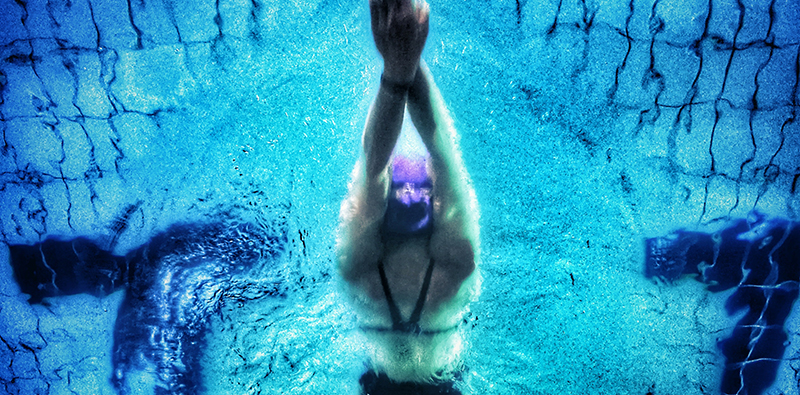
People often believe that exercise can make you hungrier, so they may therefore eat more during subsequent meals. But for the typical person, single sessions of land-based moderate to high-intensity exercise (such as running, resistance exercise and intermittent sprint cycling) have been shown to temporarily decrease appetite and do not commonly lead to increased food intake on the same day.
Professor David Stensel, Dr James King and Dr Alice Thackray from Loughborough University and Professor David Broom from Coventry University have been researching exercise and its effects on appetite for many years, one particular question that they are often asked is “Why does swimming make you hungry?” To date, this anecdotal question has not been tested in a rigorously designed experimental study. They therefore decided to compare the effects of swimming versus cycling and rest (control). They found that appetite and food intake were increased after swimming in both males and females.
The reason for this appetite-stimulating effect of swimming is not understood. One possible reason relates to the suggested link between temperature (specifically body heat loss) and food intake. In colder temperatures, food intake may increase as a mechanism to generate body heat through diet-related thermogenesis. Thermogenesis is the body’s process of using energy to produce body heat. Despite the fact that swimming would have generated body heat during the experiment, immersion in the cool water would likely have led to overall body heat loss. Further research studies in swimming are needed to confirm this.
For a full discussion on this research please visit the Conversation